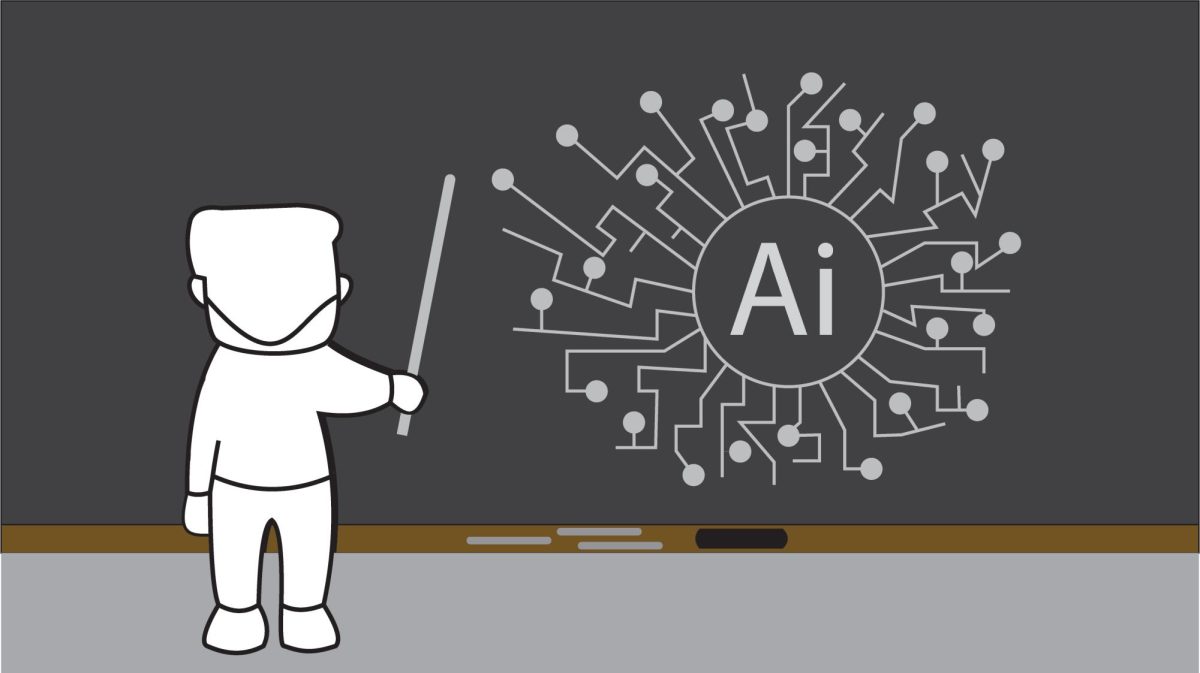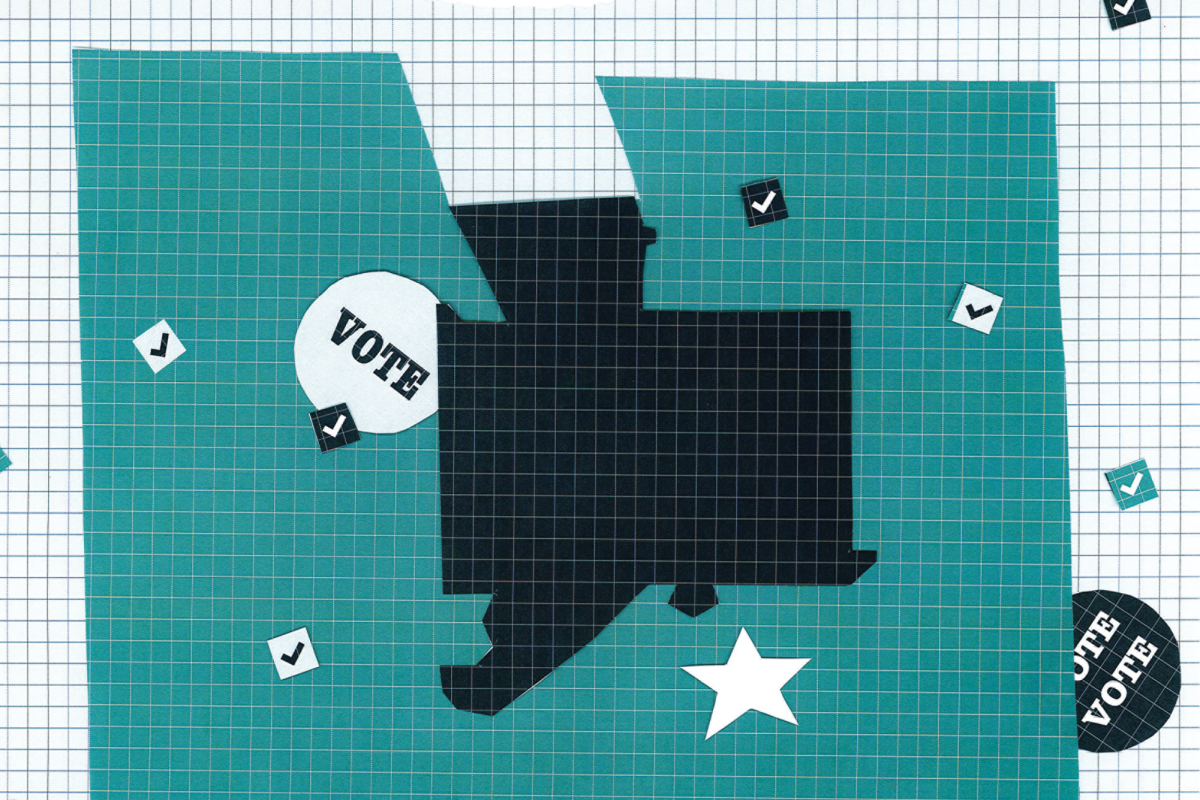Beginning September 2024, Ithaca College’s AI Exploratorium will open in Friends Hall 110 to provide students, staff and faculty with the knowledge and resources needed to navigate artificial intelligence in an academic setting.
The space, which will primarily be hosted by two student exploratory guides — seniors Phuong Ha, a computer science and mathematics double major, and Helina Kassa, a public and community health major — will focus on using one-on-one meetings to teach attendees about generative artificial intelligence. GenAI is a type of AI that uses machine learning models to generate new content or ideas.
David Weil, vice president and chief information and analytics officer in the Department of Information Technology and Analytics, said he believes students may not realize the potential GenAI has to help them in a positive way.
“It could be helpful to critique work that you do,” Weil said. “It can be helpful to manipulate text in a positive way, instead of having to reformat a blob of text, it can do that for you. There are so many uses there, so … that’s why the exploratorium is being developed. … People need to experiment, and they need to work with others.”
The exploratorium will be used as a physical replacement for the virtual AI office hours that were held throughout August 2024. Jenna Lamb, coordinator for AI initiatives and senior IT project manager, led the virtual office hours alongside the exploratory guides and she will be supervising some of the sessions in the exploratorium. She said the student guides have found that GenAI tools are most helpful when it comes to research and writing.
“[The guides] say it’s really helpful for [sending] them down the right path,” Lamb said. “In the past, maybe [research] would’ve taken a search engine longer to get to. The writing assistance is a big one, too. Being able to create a draft of their thoughts … is really helpful, or getting feedback on a draft.”
Ha said the exploratorium will also be a place for people to get more information about different forms of AI.
“Everyone knows ChatGPT but not a lot of people know Claude, Gemini, MetaAI,” Ha said. “Claude actually outsmarts ChatGPT a lot.”
Priya Sirohi, assistant professor in the Department of Writing and director of the Writing Center, has implemented AI literacy into her writing courses. She had students complete activities like using ChatGPT to craft and grade its own essays to give them a better understanding of AI and their desire to use it.
“When they read some of those essays, they were like, ‘That just doesn’t sound like me, even as a first draft. … It would be harder to work with that draft than our own,’” Sirohi said. “But then some of them were also really excited. They hoped that this would encourage professors and faculty to make more interesting assignments. They were excited about the change this would bring to K-12 education.”
Along with providing in-person help for students, faculty and staff to explore the uses of GenAI, another main goal of the exploratorium is to provide access to paid tools that people might not otherwise have access to, like a paid subscription to ChatGPT.
“It is our intention to be able to provide [paid tools] in that space, so that students — and faculty and staff, as well, but mostly students — will be able to come experiment and utilize those tools,” Lamb said.
When it comes to the likelihood of students using GenAI with negative intentions like cheating, Weil compared the possibility to his own experience as a student.
“AI certainly can be misused, just like many other tools and resources,” Weil said. “Back in my day, when I was a student, there were some students that would pay another student to do their paper or do their work. In some respects, it’s the same thing. You are misrepresenting the effort that you put into a particular assignment if you’re leveraging AI when you’re not supposed to.”
Ha said she does not consider using AI to be cheating if it is being used to create a starting point for assignments like written essays.
“If you’re using AI for an essay, for example, it can’t add in your own personal flair,” Ha said. “I suggest using it for instructions, rather than using it to do the work for you. Then, when you are presented with that problem in the future, you will know how to do it.”
In February 2024, the college’s Standards of Academic Conduct was updated to add several guidelines in reference to GenAI use in classrooms. Instructors are told they are “free to set their own policies regulating the use of generative AI tools in their courses, including allowing or disallowing some or all uses of such tools.” These policies must also be clearly communicated to students through course syllabi.
The policy also states that use of GenAI to complete assignments is equivalent to getting help from another student and using GenAI “to substantially complete an assignment or exam (e.g., by entering exam or assignment questions in an AI chat or search) is not permitted. Students should acknowledge the use of generative AI (other than incidental use) and default to disclosing such assistance when in doubt.”
In June 2023, a Cornell University committee published the report “Generative Artificial Intelligence for Education and Pedagogy” to inform faculty of both the risks and benefits of integrating GenAI into their curriculum. The report also provides a framework for this integration that is similar to the guidelines found in Ithaca College’s Standards of Academic Conduct.
For Ithaca College, Lamb said the next steps are focused on the performance of the AI Exploratorium.
“We anticipate opening in the next few weeks, I would say the next two or three weeks, and it’ll at least be open until the end of next year,” Lamb said. “Let’s see how it works, see if people use it, see if it really becomes a resource.”
Sirohi said she believes the AI Exploratorium is a step in the right direction for the college and that as AI continues to develop and become a larger part of daily use, people should be compassionate for those with differing opinions about the positive and negative effects of AI.
“Once it starts becoming part of the backdrop of all of our basic tasks and functions, much like the internet is now for everything that we do, there’s not going to be an option at some point to avoid AI,” Sirohi said. “Although there are [also] passionate arguments from people saying that it’s not inevitable. Everyone is trying to cope and take next steps in the best way possible, and I think we need to stop immediately shutting people out or judging whatever choices they’re making and just understand where people are coming from, even if you disagree.”
















